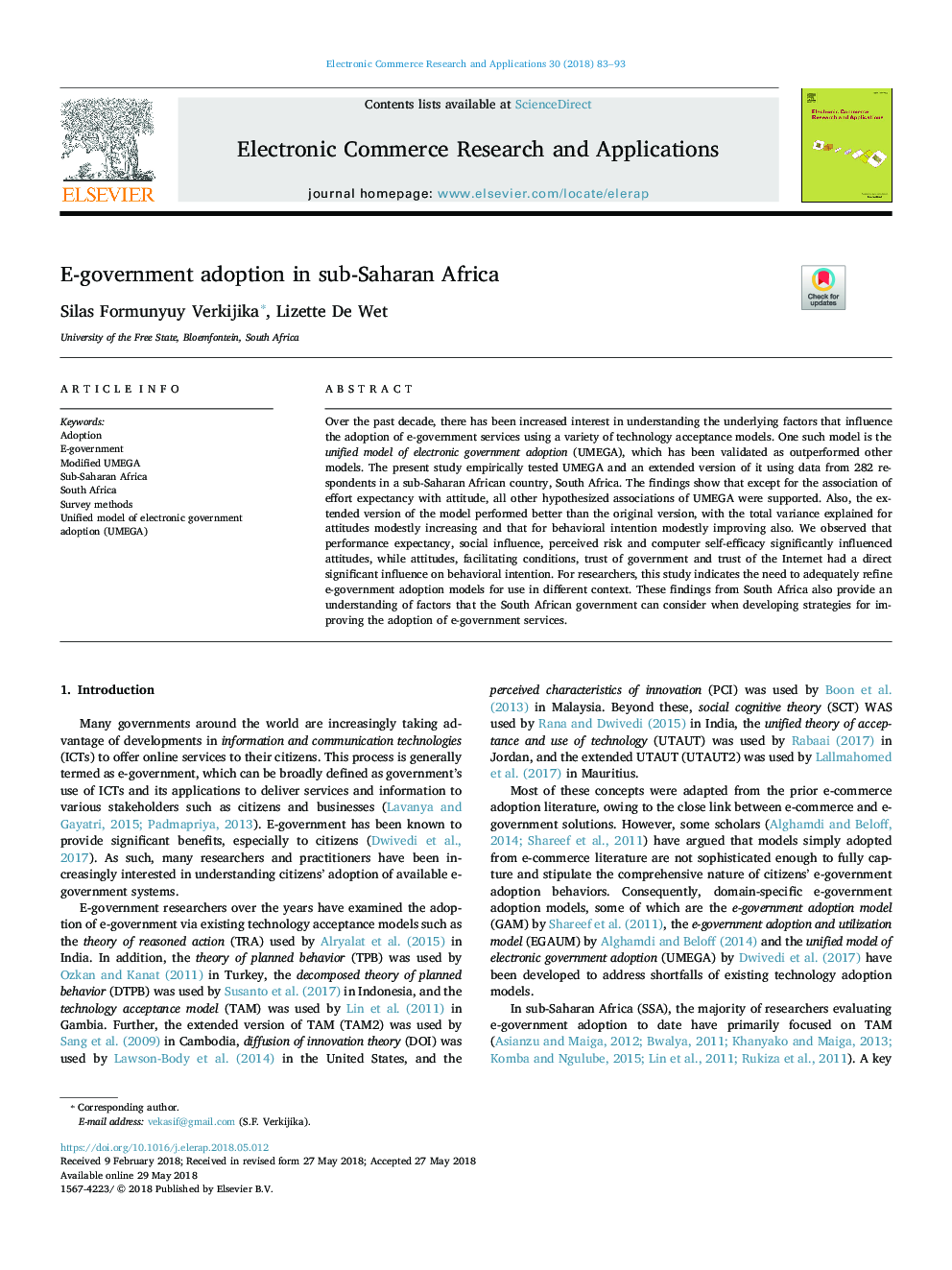| Article ID | Journal | Published Year | Pages | File Type |
|---|---|---|---|---|
| 6854002 | Electronic Commerce Research and Applications | 2018 | 11 Pages |
Abstract
Over the past decade, there has been increased interest in understanding the underlying factors that influence the adoption of e-government services using a variety of technology acceptance models. One such model is the unified model of electronic government adoption (UMEGA), which has been validated as outperformed other models. The present study empirically tested UMEGA and an extended version of it using data from 282 respondents in a sub-Saharan African country, South Africa. The findings show that except for the association of effort expectancy with attitude, all other hypothesized associations of UMEGA were supported. Also, the extended version of the model performed better than the original version, with the total variance explained for attitudes modestly increasing and that for behavioral intention modestly improving also. We observed that performance expectancy, social influence, perceived risk and computer self-efficacy significantly influenced attitudes, while attitudes, facilitating conditions, trust of government and trust of the Internet had a direct significant influence on behavioral intention. For researchers, this study indicates the need to adequately refine e-government adoption models for use in different context. These findings from South Africa also provide an understanding of factors that the South African government can consider when developing strategies for improving the adoption of e-government services.
Related Topics
Physical Sciences and Engineering
Computer Science
Artificial Intelligence
Authors
Silas Formunyuy Verkijika, Lizette De Wet,
